
探索宇宙的秘密系列套装(5册)
¥318.15
【内容简介】 星际穿越 简明清晰的时间与空间理论入门读本。基普·索恩教授,电影《星际穿越》的科学顾问,以浅显易懂的语言一一破解了宇宙中让人瞠目结舌的奇景——大爆炸、黑洞、时空弯曲、潮汐力、虫洞、引力弹弓、星际旅行等,解释了所有推动剧情的天体物理学理论,还就内容的真实性将书中的科学知识分为三种:科学事实、有根据的推测和猜想,并做了明确的标注,以帮助我们解开所有剧情设计与时空旅行之谜! 如果,哥白尼错了 16世纪,哥白尼建立日心说,将地球从其在宇宙中的独特地位降级为平庸之辈,开启了一场科学革命。几个世纪以来,这种思想一直影响着我们。然而,新近的研究结果暗示人类确实生活在一个特殊的地方,在一个特殊的时间,作为一系列不可能事件的产物。这对哥白尼的原理提出了挑战。所以,哥白尼真的错了吗? 从微小的微生物到远离地球的系外行星, 天体生物学家凯莱布·沙夫将带领我们进行一场科学探险,为寻找人类在宇宙中的未来和意义提供一种新的可能。 人类为什么要探索太空 英国著名天文学家、太空旅行专家克里斯·英庇颠覆式新作。本书讲述了人类从走出非洲到飞出地球的史诗般历程,揭示了冒险基因如何驱动人类的进化,以及人类将来如何在地球之外的浩瀚宇宙中繁衍生息。 在《人类为什么要探索太空》这本书中,作者结合了专业的天文学知识和前卫的技术,带我们回顾了太空探索事业的过去、现在和未来,从早的天文学家到今天的前沿研究人员,从人类早期的飞天之梦到今天的火箭技术,从人类次登陆月球到未来的星际旅行,甚至移民太空,成为银河系公民及其所需的技术,每一部分都是一个精彩的科幻故事,内容翔实而有趣。如果你对人类的命运和群星灿烂的未来感兴趣,《人类为什么要探索太空》是不二之选。 如果宇宙可以伸缩 屡获大奖的天体生物学家凯莱布·沙夫利用前沿科学技术,从可观测宇宙的极限开始, 以1027到10-35米的距离,通过63个不同尺度进行观测,穿越大约930亿光年,展现了全部已知的现实宇宙和可想象宇宙的范围;并结合广受好评的艺术家罗恩·米勒的100多幅精美原创插图和信息图,带领读者走进一场史诗般的视觉穿越之旅。 《如果宇宙可以伸缩》在星系、恒星和行星、海洋和大陆、植物和动物、微生物、原子,以及许许多多其他事物之间实现了穿越,终到达亚原子世界。在那里,时空结构本身混淆了所有已知的物理规则,颠覆了人们的认知和想象。 宇宙的结构 物理与音乐看似是对立的,但在《宇宙的结构》一书中,斯蒂芬?亚历山大将带领我们走过他非凡的探秘旅程——从毕达哥拉斯到爱因斯坦,从爵士乐到理论物理学,从天籁之音到弦理论,并揭示出:宇宙结构的起源实际上可能与爵士乐的即兴演奏有着很大的相似之处,那就是都是一种振动与共振! 《宇宙的结构》这本书迷人之处在于,它既是一本关于历史的回忆录,又是一本推广物理学的前沿科普著作,还是一本普及爵士乐的轻松读物。斯蒂芬?亚历山大关于宇宙结构和相关历史的研究,和他的人生故事一样,值得一读。 【编辑推荐】 星际穿越 一部媲美《时间简史》的巨著,同名电影幕后科学顾问、天体物理学巨擎基普·索恩巨献。 基普·索恩写给所有人的天文学通识读本,揭示电影幕后的科学事实、有根据的推测和猜想,解开黑洞、虫洞、星际旅行等一切奇景的奥妙。 国家天文台8位天体物理学科学家权威翻译。国家天文台苟利军、王岚、李然、尔欣中、王乔、李楠、王杰、谢利智8位博士重磅担纲翻译,文字优美,将这本极富科学内涵的图书演绎得极为通俗易懂和精彩。 豪华推荐人阵容,好莱坞导演克里斯托弗·诺兰、北京天文馆馆长朱进专文作序,欧阳自远等3大院士、李淼、魏坤琳等5大科学家、《三体》作者刘慈欣联袂推荐:中国月球探测工程首席科学家、中国科学院院士欧阳自远,高能天体物理学家、中国科学院院士李惕碚,著名天体物理学家、中国科学院院士武向平,中国科学院高能物理研究所和国家天文台双聘研究员、中国科学院粒子天体物理重点实验室主任张双南,著名物理学家、中山大学教授李淼,国家杰出青年科学基金获得者,国家天文台研究员及宇宙暗物质与暗能量研究团组首席科学家陈学雷,加州理工学院物理学教授陈雁北,北京大学心理学系副教授、博士生导师魏坤琳(Dr.魏),中国当代知名的科幻作家、畅销书《三体》作家刘慈欣鼎力推荐,带你探索宇宙奥秘。 如果,哥白尼错了 著名天体生物学家凯莱布·沙夫重磅新作!作者用诗一般的语言和奇特的想象,带领我们进行一场科学探险,寻找人类在宇宙中的未来和意义。 《星期日泰晤士报》年度科学图书,《出版商周刊》年度十大科学图书,爱德华 · 威尔逊科学写作奖获奖图书。 英国皇家学会前主席、皇家天文学家马丁 · 里斯,美国理论物理学家劳伦斯 · M. 克劳斯,著名科学记者李 · 比林斯等科学界大咖联袂推荐。 人类为什么要探索太空 英国著名天文学家、太空旅行专家克里斯·英庇颠覆式新作。 从走出非洲到飞出地球,太空旅行专家揭示冒险基因如何驱动人类的进化。 一本书探索太空旅行的过去、现在和未来,详细讲述人类探索太空的艰辛历程,以及种种触动人心的故事。 本书共分为4个部分讲述人类探索太空的伟大历程,每部分之后是一个精彩的科幻故事。如果你对人类的命运和群星灿烂的未来感兴趣,《人类为什么要探索太空》是不二之选。 《纽约时报》《华尔街日报》《自然》重磅力荐。天体物理学家、畅销书《给忙碌者的天体物理学》作者尼尔·德格拉斯·泰森,科学记者、畅销书《50亿年的孤寂》作者李·比林斯,英国著名科普作家、萨塞克斯大学天文学访问学者约翰·格里宾,科幻作家、美国国家航天协会本·波瓦一致强荐! 如果宇宙可以伸缩 媲美《星际穿越》,继畅销书《如果,哥白尼错了》之后,会讲故事的科学家凯莱布·沙夫全新力作。 凯莱布·沙夫联合知名艺术家罗恩·米勒用诗意的语言、100多张惊艳的插画揭示1027到10-35米全尺度下的63个宇宙,堪比一场动人心魄的史诗级宇宙穿越之旅。 《自然》《科克斯评论》《出版人周刊》《书单》争相力荐。 宇宙的结构 理论宇宙学家、萨克斯演奏家斯蒂芬?亚历山大颠覆式新作,创新揭示音乐和宇宙结构之间的秘密联系。 《宇宙的结构》这本书迷人之处在于,它既是一本关于历史的回忆录,又是一本推广物理学的前沿科普著作,还是一本普及爵士乐的轻松读物。 宇宙的结构是在无限空间中上演的一场即兴演出,我们的宇宙是一个音乐宇宙。50多年前,著名爵士音乐家约翰?柯川画了一副叫作《曼荼罗》的名画,他在一个圈里画了12个音符,并通过直线相连,形成了一个五角星。这一灵感来源于物理学家阿尔伯特?爱因斯坦, 而柯川将物理和几何元素深深植入了他的音乐中。今时今日,斯蒂芬?亚历山大开始深入探讨这一问题,力图用爵士乐回答物理学中棘手的关于宇宙结构从何而来的难题。 《纽约时报》高度盛赞,《物理世界》年度书籍。诺贝尔物理学奖得主利昂 ? 库珀,圈量子引力论创始人李 ? 斯莫林,加州大学伯克利分校教授爱德华 ? 弗伦克尔,艺术家、作曲家布莱恩 ? 伊诺跨界推荐。 湛庐文化出品。

汪曾祺全集:1-12卷
¥318.06
平装版《汪曾祺全集》在2019年1月出版的《汪曾祺全集》精装版的基础上,增补了近两年来新发现的散文4篇、谈艺文章3篇、诗歌9首、书信10封及题词、书画题跋若干条;以新发现的较早版本替换底本的有:小说《猎猎》《磨灭》,散文《蔡德惠》;补充题注中的出版信息;改正错讹。 《汪曾祺全集》收迄今为止发现的汪曾祺全部文学作品以及书信、题跋等日常文书,共分12卷:小说3卷,散文3卷,戏剧2卷,谈艺2卷,诗歌及杂著1卷,书信1卷,并附年表。 每篇以*初发表的报刊版本为底本(少量未发表作品以手稿、油印本为底本),以作者生前自己或他人编订出版的、比较优良的作品集或手稿作为参照校本,行校勘,改正文字的错、漏、衍、倒置及标错误。每篇皆有题注,交代原载及收作品集、文本改动、笔名等版本信息。保留作者原注;其他少量必要的注释,皆标明“编者注”。书信题注,介绍收信人简况
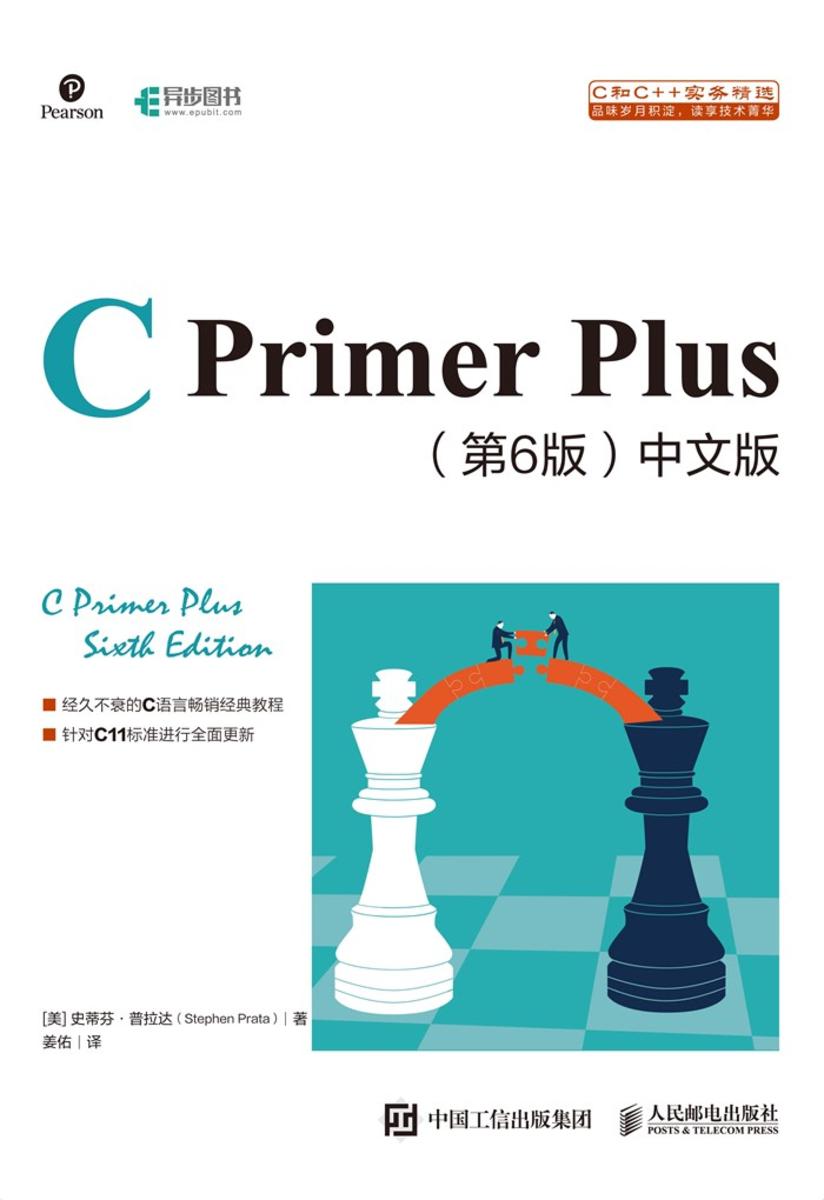
C Primer Plus(第6版)中文版(修订版)
¥318.00
《C Primer Plus(第6版)中文版》详细讲解了C语言的基本概念和编程技巧。 《C Primer Plus(第6版)中文版》共17章。第1章、第2章介绍了C语言编程的预备知识。第3章~第15章详细讲解了C语言的相关知识,包括数据类型、格式化输/输出、运算符、表达式、语句、循环、字符输和输出、函数、数组和指针、字符和字符串函数、内存管理、文件输和输出、结构、位操作等。第16章、第17章介绍C预处理器、C库和高级数据表示。本书以丰富多样的程序为例,讲解C语言的知识要和注意事项。每章末尾设计了大量复习题和编程练习,帮助读者巩固所学知识和提高实际编程能力。附录给出了各章复习题的参考答案和丰富的参考资料。 《C Primer Plus(第6版)中文版》可作为C语言的教材,适用于需要系统学习C语言的初学者,也适用于想要巩固C语言知识或希望一步提高编程技术的程序员。
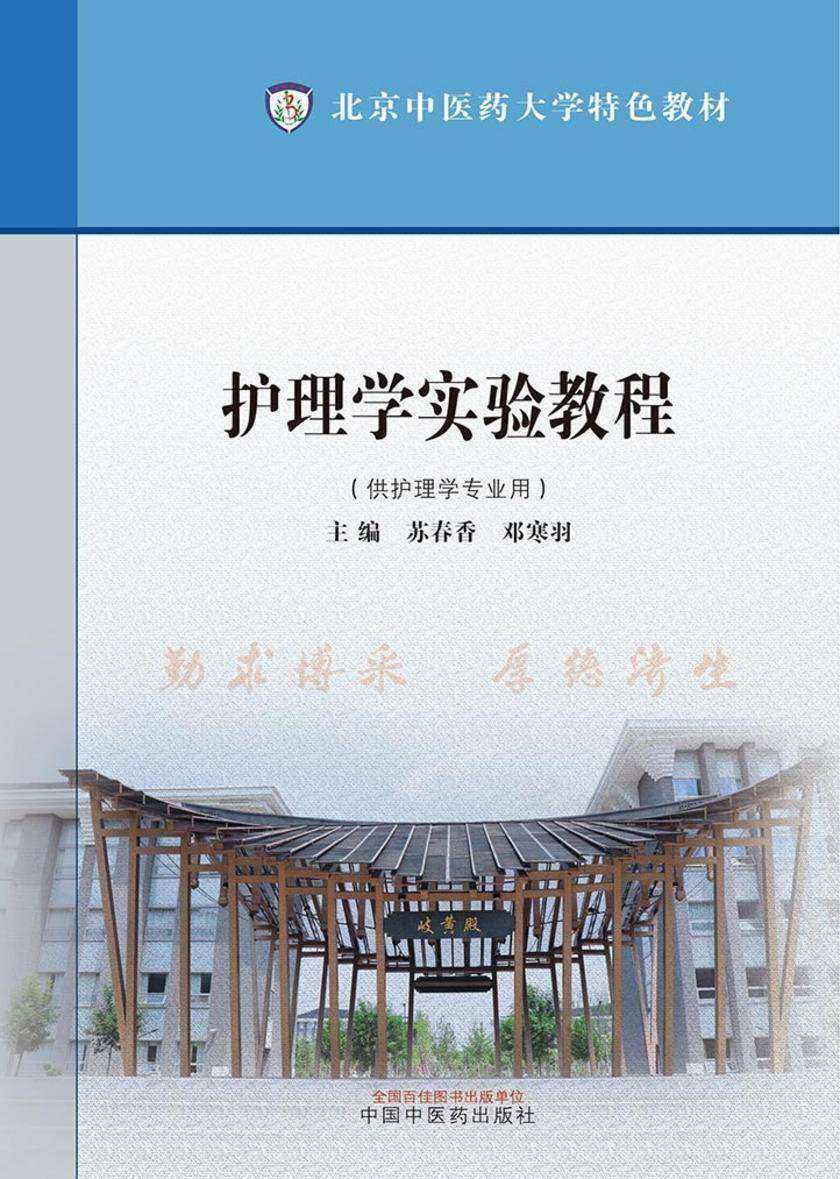
护理学实验教程(北京中医药大学特色教材)
¥318.00
本教材为北京中医药大学特色教材。全书共分十一篇,分别从基础护理学,专科护理学,中医护理学三个实验教学模块介绍了《护理学基础》、《内科护理学》、《外科护理学》、《中医护理学基础》等11门课程的81项基础型实验教学项目,并精心设计、编写了18项综合性实验项目。每项实验又按学习目标、实验安排、操作前准备、操作步骤行编写,且针对每一项操作编写了考核评价标准。本教材内容全面、结构严谨、形式新颖,实用性强,增加综合型实验项目,并将中医与西医护理实验行有机融合,以此培养学生的分析判断能力、临床思维能力和解决实际问题的能力,也有助于拓实验思路,丰富实验教学手段。本教材适用于全国高等中医药院校护理学专业的学生和教师使用,同时也可作为中医医院临床护士的技能实训教材。
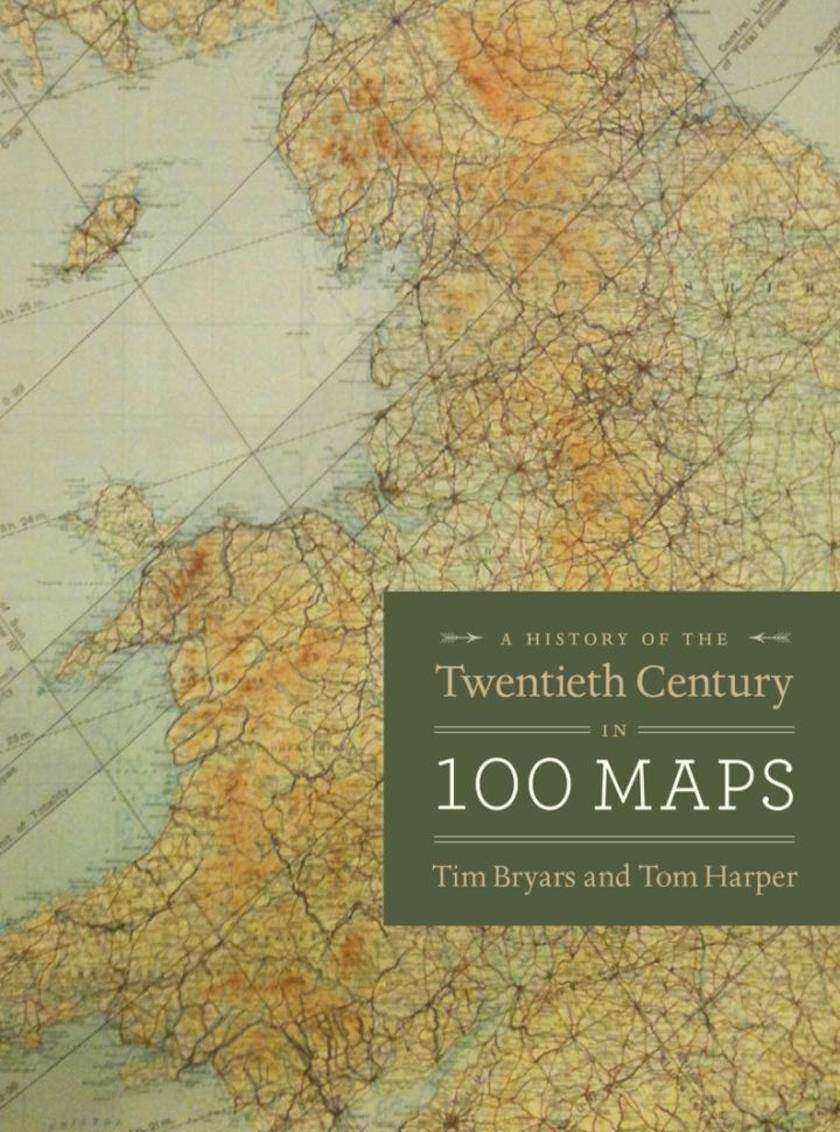
History of the Twentieth Century in 100 Maps
¥317.84
The twentieth century was a golden age of mapmaking, an era of cartographic boom. Maps proliferated and permeated almost every aspect of daily life, not only chronicling geography and history but also charting and conveying myriad political and social agendas. Here Tim Bryars and Tom Harper select one hundred maps from the millions printed, drawn, or otherwise constructed during the twentieth century and recount through them a narrative of the century's key events and developments.?As Bryars and Harper reveal, maps make ideal narrators, and the maps in this book tell the story of the 1900s-which saw two world wars, the Great Depression, the Swinging Sixties, the Cold War, feminism, leisure, and the Internet. Several of the maps have already gained recognition for their historical significance-for example, Harry Beck's iconic London Underground map-but the majority of maps on these pages have rarely, if ever, been seen in print since they first appeared. There are maps that were printed on handkerchiefs and on the endpapers of books; maps that were used in advertising or propaganda; maps that were strictly official and those that were entirely commercial; maps that were printed by the thousand, and highly specialist maps issued in editions of just a few dozen; maps that were envisaged as permanent keepsakes of major events, and maps that were relevant for a matter of hours or days.?As much a pleasure to view as it is to read, A History of the Twentieth Century in 100 Maps celebrates the visual variety of twentieth century maps and the hilarious, shocking, or poignant narratives of the individuals and institutions caught up in their production and use.

Phytomedicines, Herbal Drugs, and Poisons
¥317.84
Plants have been used to treat disease throughout human history. On a clay slab that dates back approximately five thousand years, the Sumerians recorded medicinal recipes that made use of hundreds of plants, including poppy, henbane, and mandrake. During the Middle Ages, monks commonly grew and prescribed plants such as sage, anise, and mint in their monasteries. And as the market for herbal remedies and natural medicine grows, we continue to search the globe for plants and plant compounds to combat our various ailments.?In Phytomedicines, Herbal Drugs, and Poisons, Ben-Erik van Wyk offers a richly illustrated, scientific guide to medicinal and poisonous plants, including those used for their mind-altering effects. Van Wyk covers approximately 350 species-from Aloe vera and Ephedra sinica to Cannabis sativa and Coffea arabica-detailing their botanical, geographical, pharmacological, and toxicological data as well as the chemical structures of the active compounds in each. Readers learn, for example, that Acacia senegal, or gum acacia, is used primarily in Sudan and Ethiopia as a topical ointment to protect the skin and mucosa from bacterial and fungal infections, and that Aconitum napellus, more commonly known as aconite, is used in cough syrups but can be psychedelic when smoked or absorbed through the skin. With 350 full-color photographs featuring the plants and some of their derivative products, Phytomedicines, Herbal Drugs, and Poisons will be an invaluable reference not only for those in the health care field but also for those growing their own medicinal herb gardens, as well as anyone who needs a quick answer to whether a plant is a panacea or a poison.

成功企业这样管理(套装12册)
¥317.50
别让猴子跳回背上 一幅幅职场中真实鲜活的情景,一个生动有趣的企业管理譬喻,让你跟随作者一起思考:我每天要从别人背上接受多少只“猴子”?我如何能把不属于自己的猴子交出去?我怎么能让自己背上的猴子越来越少呢? 世界著名企业管理专家威廉·安肯三世倾力奉献“猴子管理法”——一套实用*的管理心法,让高层管理者反思自己的战略人生选择,把企业成长真正建立在员工成长的基础上;让中层管理者找到时间管理的有效方法,甩掉背上多余的猴子;让员工重新规划自己的职业生涯,更加自动自发地提升自己的自制能力与业务水平。 清单革命 现代世界的复杂性已经超出了人力所能控制的范围,任何一个需要从业人员掌控大量知识的领域都难逃厄运。从医疗到金融,从商业到行政,生活中的错误屡屡发生,令人触目惊心。 人类渴望终结错误,再造An全的生存空间。为了实现这个目的,曾推动奥巴马医改的White House顾问阿图?葛文德通过在医疗领域的实践,掀起了一场“清单革命”,并将革命风潮推广到建筑、飞行、金融、行政等与我们生活息息相关的领域。 使用清单,就是为大脑搭建起一张“认知防护网”,它能够弥补人类与生俱来的认知缺陷,如记忆不完整或注意力不集中。 清单革命 现代世界的复杂性已经超出了人力所能控制的范围,任何一个需要从业人员掌控大量知识的领域都难逃厄运。从医疗到金融,从商业到行政,生活中的错误屡屡发生,令人触目惊心。 人类渴望终结错误,再造An全的生存空间。为了实现这个目的,曾推动奥巴马医改的White House顾问阿图?葛文德通过在医疗领域的实践,掀起了一场“清单革命”,并将革命风潮推广到建筑、飞行、金融、行政等与我们生活息息相关的领域。 如何打造活力组织 活力组织是指能够超越经济周期和组织兴衰规律的约束,通过建立共同的发展价值观,建立系统的活力运行机制,从而保持对环境的敏感性和适应性,在困难环境或变革下,均能持续取得成功的组织。每一个管理者的使命都是打造一个活力组织。这个使命比实现短期的增长更加重要,因为它不仅可以让企业在创新与变革中随机应变,还可以让企业在波谲云诡的时代变化中屹立不倒。 Salesforce传奇 Salesforce是20年前软件领域的行业黑马,而今天已经成为引领行业发展的骏马。《Salesforce传奇》是Salesforce创始人马克·贝尼奥夫的颠覆性佳作,记述了他自身创业的心智与历程。为你揭开Salesforce高速发展背后的9大关键法则:如何把一个简单的想法转化成高速成长的企业、如何选对差异化赛道驱动品牌增长破圈、如何将每一场活动都转化成口碑升级的机会、如何打造一支专属于你的百万量级的销售大军、如何以长期视角打造出助力用户不断增长的伟大产品、如何不让你的公司只为了商业利益而运转、如何才能将你的商业模式推广到全新市场、如何用进化的眼光衡量你的公司是否在向上发展,以及如何赋能优秀的人才与资源助推公司的快速成长。 *体验管理TXM 品牌面对获客成本高、品牌资产积累弱、转化效率低、品牌溢价难四大增长难题,解决问题优选方式就是选择体验导向的用户驱动增长模式,即利用好的口碑吸引更多的人,利用可感知的共鸣增加更深度认同,利用持续互动实现更长期的关系,利用新的价值实现更高额的购买。 奈飞文化手册 一本对奈飞文化进行深入解读的力作。2009年,奈飞公开发布了一份介绍企业文化的PPT文件,在网上累计下载量超过1500万次,被Facebook的CFO谢丽尔·桑德伯格称为“硅谷重要文件”。本书是奈飞前CHO,PPT的主要创作者之一帕蒂·麦考德对这份PPT文件的深度解读。 鞋狗 在《鞋狗》中,耐克创始人菲尔·奈特亲自讲述了耐克“从0到1”的过程:作为一位美国俄勒冈州的普通人,他出于对跑步的热爱决定进入跑鞋销售领域,从50美元起步,带领一支个性古怪的“杂牌军”,游走于随时破产的边缘,却*终缔造了一个强大的体育商业帝国,让耐克标志成为少数几个可以被全世界人毫不费力认出的商标之一。 要领 《要领》一书是斯坦福大学原校长、谷歌母公司Alphabet董事会主席、图灵奖得主、“硅谷教父”约翰·汉尼斯重磅力作,由清华经管领导力研究中心主任杨斌教授领衔翻译。 这是一本给“要成为领导者”之新生代的领导力讲义。约翰·汉尼斯以自己“在事上磨”的真实案例来现身说法,总结自己“满脸污泥、汗水和血迹”地在竞技场中拼搏的习得,凝结成10条归真求是的“领导要义”。不鸡汤,不套路,不理论,却生动跃然,入理切情,春风化雨。这本书,绝不是在领导力著作的巍巍邺架上增加的“另一本”,而注定是你*该读到的“那一本”。 海尔制 《海尔制》从海尔37年来的战略与组织结构解剖其演化,从管理思想史的角度将人单合一模式提炼为海尔制范式。全书共分为5个部分,跟踪海尔成长的历史全景,系统阐释了海尔新提出的生态战略及其哲学体系、组织架构、实施路径和赋能体系。 海尔制想让每个人都可以在企业组织中独立创造,为每个小微和创客提供一个可以自我试错和探索新物种的平台,再通过重塑组织结构将组织绩效、员工自我实现和用户个性化需求*融合,追求共创共赢的生态红利。 生长 《生长:从战略到执行》是*创始团队核心成员、*前总裁、*集团荣誉合伙人语嫣重磅新作。语嫣是淘系各业务板块“从0到1”的重要创建者,负责过*、*商城(天猫)、聚划算等众多一线业务。在战略与管理实战过程中,语嫣总结出一套能让战略*落地、让企业获得成功的战略框架,并得到40家中外企业的验证和积极反馈。在此基础上,语嫣不断打磨完善,终于得到了本书中这套能让战略*落地的全新框架,希望助力更多企业解决战略从制定到执行中的难点和卡点,真正实现从0到1再到N。 生长 企业的命运取决于它的CEO?《让高管团队更*》的作者们并不这么认为。相反,他们认为,在当今这个瞬息变化的世界,舍弃单打独斗的领导模式,创建和维持一支*的高管团队,依靠集体智慧,也许是企业蕞可依靠的破局之道! 管理百年 过去的100年,管理的艺术一次次地得到了彻底改造。在《管理百年》中,我们经历了每一轮的创新,认识到它如何与过去、未来相契合。本书对管理历史进行了精心研究,不仅梳理了20世纪这个管理黄金时代中管理理论及实践的清晰脉络,还能够揭示出管理未来的重要线索。《管理百年》为管理编年史赋予了蓬勃的活力,涉及的历史人物阵营之豪华,连小说家也要羡慕不已。

不可能犯罪诊断书(全6册)
¥316.99
体验“美国福尔摩斯”遭遇的72起高能罪案。埃勒里·奎因关门弟子、爱伦·坡奖终身成就奖得主的“不可能犯罪”代表作! 年轻的萨姆·霍桑医生来到诺斯蒙特镇,在这里成为一名执业医生。令人意想不到的是,比患者更早登门的是此地接连出现的各种离奇悬案。 别不相信,在这样的一座小镇中,却隐藏着诸多看似不可能发生的罪案。

养成“超越不可能“的思维方式(套装12册)
¥316.90
太空探索既是一个关于探索和发现的故事,也是一个关于领导力和团队合作的故事。本书深探讨了NASA高管载人航天生涯的组织文化、领导风格和见解,分享他们从看似不能克服的挑战中获得的经验教训。 书中展示了NASA如何解决分歧,克服自满情绪,从悲剧和逆境中重建高能力团队和培养创新思维,营造出一种持续吸引杰出人才的文化,阅读本书能帮助企业建立“以解决问题为导向”的组织模式,帮助读者养成“变不可能为可能”的思维方式。 全书分为三个部分,共有22章,按照时间顺序,从水星计划、阿波罗计划到空间站计划展现了NASA如何以挑战不可能的方式突破与创新、以解决问题为导向实现目标、以永无止境的学习态度保持高水准。
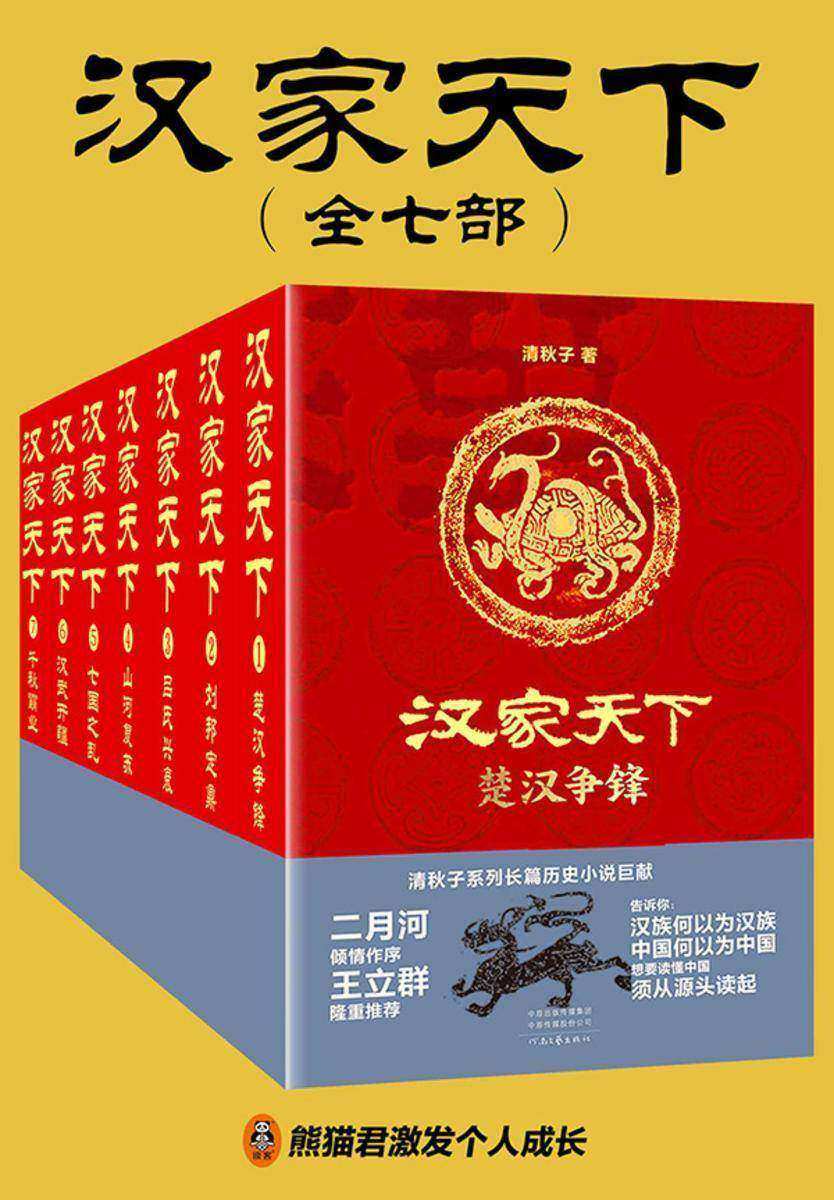
汉家天下(全七部)
¥316.60
《汉家天下》共七部,内容涵盖西汉王朝前期的崛起历程。从“萧何月下追韩信”讲起,至霍光专权结束。 刘邦、韩信、萧何、周勃、吕后、贾谊、周亚夫、汉文帝、汉景帝、晁错、袁盎、汉武帝、卫青、霍去病、李广、李陵、霍光等著名历史人物重新变得生动而又充满魅力。 像读《三国演义》和《水浒传》一样读汉朝历史!

奋斗者:侯沧海商路笔记(1-7册)
创业!全景展现中国20年来的商业风云!2017年中国网络小说十大作品!这是一部民企教父的商路传奇奋斗史,也是每一个人的命运打拼史。
¥315.00
上世纪90年代末,正逢国内经济转型、国企改制的风云变幻时代,出身于国营企业工人家庭的侯沧海大学毕业后考入基层政府部门,却与女友两地分居。为了与她团聚,侯沧海抓住一切机会脱颖而出,女友工作调动却屡次落空。直接领导被调离,冤家对头不断打压,家庭的突变,促使侯沧海痛定思痛,辞职下海,走上创业之路。 从公务员到商人的身份变化,从乡镇到全国5个层层递进阶段的摸爬滚打,从餐饮业到房地产9个不同行业的磨砺,以及1次史玉柱式的破产重来,侯沧海完成了从草根人物到首富的奋斗之路! 翻开本书,跟随侯沧海的成长,在中国跌宕起伏的时代变迁20年中,见识一个民企教父的热血发家史。

乡村振兴战略解读(套装6册)
¥314.99
套装包括:《国家基石:基层社会治理图景与乡村振兴》《中国扶贫脱贫史》《乡村振兴探索创新典型案例》《脱贫攻坚为什么能:案例解读精准扶贫》《乡村振兴专家深度解读》《大国之本:乡村振兴大战略解读》

探索本质,了解真实的你自己(套装共12册)
¥314.70
你是否觉得自己: 想做出更大的贡献,但缺乏精力? 跑得更快了,但没有更近自己的目标? 面对职场内卷,在崩溃的边缘摇摇欲坠? 生活中只剩关键的事,时间还是不够用? 那么,《轻松主义》就是你的救星! 《精要主义》教我们如何摒弃琐碎,直抵精要,只做zui重要的事,而《轻松主义》探讨了在摒弃不必要之事后,如何让关键的事变得容易做。全书共分为三个部分,一步步带我们找回轻松状态,采取轻松行动,获得轻松成果。 做事太用力不一定是好事,关键是要用好巧劲儿找准节奏。你要更聪明地工作,而不只是更努力地工作,以轻松的状态,轻松的行动,走出轻松人生。

Blossom Street Bundle (Book 1-5): The Shop on Blossom Street / A Good Yarn / Sus
¥313.53
Perfect for fans of Maeve Binchy' - Candis Welcome to Blossom Street – where dreams come true. Fall head over heels in Blossom Street with the first five books in Debbie Macomber’s bestselling series bundled together for perfect reading pleasure. Including: The Shop on Blossom Street, A Good Yarn, Susannah’s Garden, Christmas in Seattle and Back on Blossom Street. Make time for friends. Make time for Debbie Macomber.

撬动世界的沙盘:物质的文明史(套装共5册)
¥313.20
《棉花帝国:一部资本主义全球史》:棉花产品在我们的生活中无处不在,以至于我们往往难以注意到它的重要性。但棉花产业的历史实际上是与近代资本主义的历史紧密关联在一起,理解棉花产业发展史是理解资本主义和当代世界的关键。本书作者斯文?贝克特通过叙述棉花产业发展的历史,解释了欧洲国家和资本家如何在短时间内重塑了这个世界历*重要的一项产业,并进而改变了整个世界面貌的。 《茶叶与帝国:口味如何塑造现代世界》: 茶叶一直是世界上*受欢迎的商品之一。几个世纪以来,种植、销售茶叶所带来的收益为战争提供了资金,推动了殖民活动,而茶叶的栽种也在土地使用、劳动力制度、市场运作和社会等级制度等方面带来了巨大的变化,这些变化至今尚存。本书以历史的眼光深入审视了男男女女是如何通过在欧洲、亚洲、北美洲和非洲的茶产业来改变全球的口味和习惯的。 《美食与文明:帝国塑造烹饪习俗的全球史》: 从大约两万年前人类掌握谷物烹饪到现在,本书作者讲述了世界上主要饮食的兴衰历史。透过多种饮食表面上的混杂局势,作者揭示了烹饪谱系图潜在的简明规律,说明了烹饪哲学中关于健康、经济、政治、社会和神灵信仰的周期性变化如何推动新饮食的建立,其中一些被选为帝国饮食,在全球逐渐占据主导地位。 《季风帝国:印度洋及其入侵者的历史》: 本书重新展现了印度洋地区的文明, 以及在西方入侵者的掌控下它逐渐衰亡的历史。本书从一个细微而无阻碍的视角重现了作者对于异域文化的理解。这部史诗般的作品想必能够激发人们的阅读兴趣,并且具有启发意味。 《改变历史的香料商人》: 17世纪初,太平洋上一个不为人知的小岛岚屿产出的肉豆蔻成为欧洲各国在香料竞赛中争夺的焦点,这引发了一场荷兰东印度公司与纳撒尼尔?考托普领导的一小群英国香料商人之间激烈而血腥的斗争,这场斗争*终以荷兰与英国达成历史上影响极为深远的一项交易告终。英国将岚屿控制权让给荷兰,作为回报,英国得到了曼哈顿。本书讲述了一个精彩的冒险故事。作者选择了几位有代表性的香料商人,通过他们的故事为读者生动再现了一段传奇历史。

四川省文联主席李致作品集(全5册)
¥312.99
本套装共五卷,分别为《李致文存:我与巴金》《李致文存:我的书信》《李致文存:我与出版》《李致文存:我与川剧》《李致文存:我的人生(上下)》 卷《我与巴金》:回顾了在与巴金六十多年的接触中,李致对巴金为人的不少独特感受,从不同的角度,写出他心目中的“世纪良知”巴金。 第二卷《我的人生》:回顾了李致九十年的人生,以随笔的形式记述的人生往事,既是个人的历史,也是时代和社会的缩影。从读小学时为抗日战士捐寒衣,青年时期参加学生运动,后来加入中国共产党,在成渝两市做地下工作。后来,李致在共青团大学、区、市、省和中央机关多个岗位工作,在改革开放初期,回到四川,为四川出版、振兴川剧和文艺工作作出贡献。 第三卷《我与出版》:详细回顾了四川出版业过去几十年的发展历程。在上世纪70、80年代,四川出版异军突起,时任四川人民出版社总编辑的李致,带领四川出版积极“创业”,率先突破“地方化、群众化、通俗化”方针的束缚,立足本省,面向全国,推出了一系列品牌丛书,在全国有极大影响。 第四卷《我与川剧》:则回顾了这一段历程,从中也可看出川剧发展的辉煌历程和波澜起伏。1983年至1991年,李致任四川振兴川剧领导小组副组长,主持日常工作。他参与制定每一阶段的规划与任务,组织全省川剧汇演和调演,带团到北京、上海以及欧洲、日本等地演出,积极推动川剧创新发展,与不少川剧人成为知心朋友。 第五卷《我的书信》:则收录了李致与巴金的诸多书信,还有曹禺、张爱萍、李又兰、戈宝权、冯骥才、刘绍棠、严文井、陈白尘、张乐平、柯岩、茹志鹃、秦牧、周克芹等名家的书信,留下丰富又珍贵的手史料。

The Girl of Fire and Thorns Complete Collection
¥312.84
All three volumes of Rae Carson's New York Times?bestselling The Girl of Fire and Thorns trilogy plus the three novellas set in the same world, available together! An insecure princess with an unclear destiny becomes a secret bride, a revolutionary, a queen, and—finally—the champion her world so desperately needs in this epic fantasy series that Tamora Pierce called "engrossing" and that Veronica Roth said was "intense, unique . . . definitely recommended."This complete collection includes the three volumes of the trilogy: book one, The Girl of Fire and Thorns; book two, The Crown of Embers; and book three, The Bitter Kingdom. It also includes the three novellas set in the world of the series: The Shadow Cats, The Shattered Mountain, and The King's Guard.Once every century, one person is chosen for greatness. But the prophecy is vague, and Elisa has no idea why she was chosen or how she will fulfill the expectations. Her future is unknown and her potential is tremendous—even if she doesn't realize it. A sweeping fantasy series about a young woman finding her true strength, this is perfect for fans of Kristin Cashore's Graceling and George R. R. Martin's Game of Thrones.

后浪汗青堂·欧洲大航海时代(套装共6册)(大航海时代的交流与碰撞,一套精彩的通俗史学著作,生动描述主流历史著作中读不到的传奇航海冒险!)
¥312.00
17世纪初,太平洋上一个不为人知的小岛岚屿产出的肉豆蔻成为欧洲各国在香料竞赛中争夺的焦,这引发了一场荷兰东印度公司与纳撒尼尔·考托普领导的一小群英国香料商人之间激烈而血腥的斗争,这场斗争终以荷兰与英国达成历史上影响极为深远的一项交易告终。英国将岚屿控制权让给荷兰,作为回报,英国得到了曼哈顿。 本书讲述了一个精彩的冒险故事。作者选择了几位有代表性的香料商人,通过他们的故事为读者生动再现了一段传奇历史。

英语民族史(套装共4册)
¥312.00
《英语民族史》是以英国历史为中心,从恺撒侵英国到第一次世界大战爆发,跨越了四个世纪,是温斯顿·丘吉尔最伟大的作品之一。本书既概述了英国各个历史时期政治、军事、文化、经济、社会等方面的发展情况,也介绍了美国、加拿大、澳大利亚和新西兰等英语国家的诞生过程以及与英国的关系。本卷《新世界》讲述了1485—1688年英国如何第一个成为立宪制国家的故事:大航海时代,英国在亨利八世的统治下成为新教国家;“童贞女王”伊丽莎白一世在国内为继承权和至高无上的地位而战;“世界是圆的”这一发现使人们得以探索大西洋彼岸的广袤大陆;现代美国雏形孕育时,英国陷了血腥的内战,并在奥利弗·克伦威尔的领导下行了共和制实验。
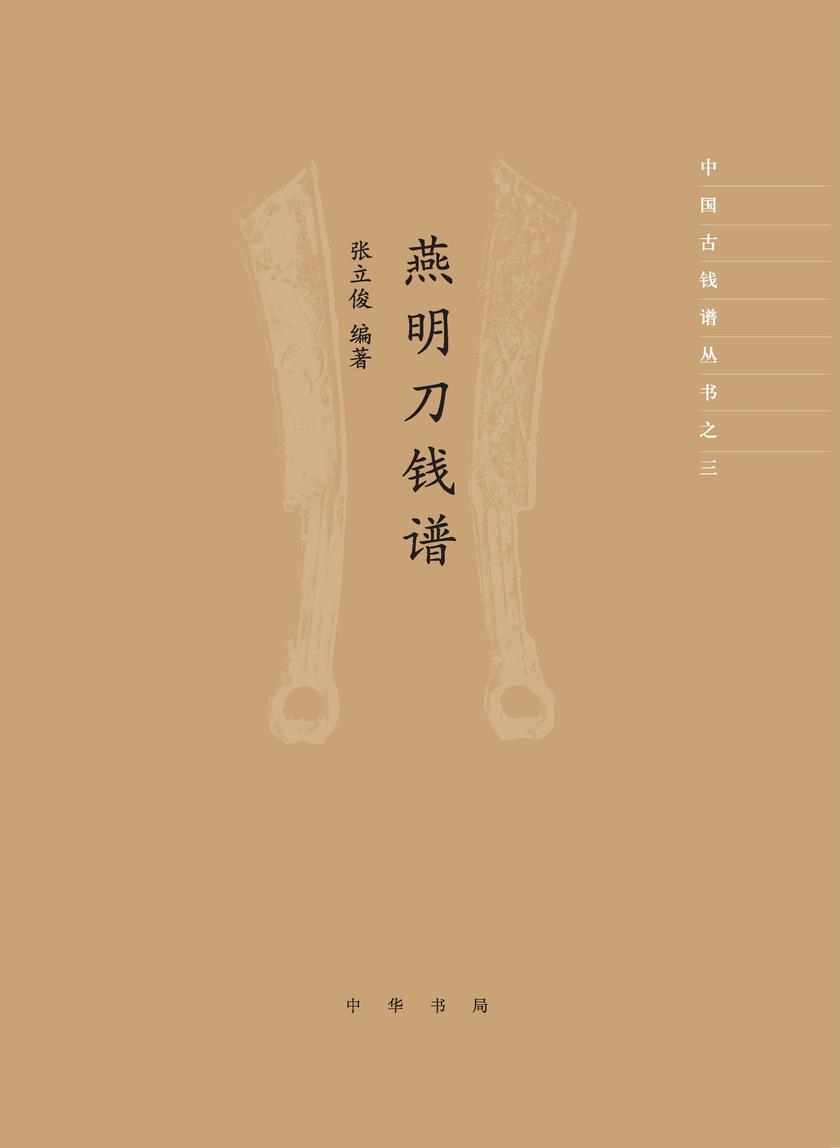
燕明刀钱谱--中国古钱谱丛书 (精) 中华书局出品
¥312.00
燕国历时八百余年,由于地理位置独特,其经济和文化都体现着中原和北方交融的特色,是先秦地域文化的重要代表。燕国的易刀作为有2000多年历史的文物,又是先秦异形货币,背文有大量的文字或符号没有被释读,大量的信息没有被解惑,应该是集学术研究、投资收藏极强的品种,但在收藏市场上甚至不及宋钱清钱的价值,这是极不正常的现象。本书的出版能够极大地提升燕易刀的学术地位和市场价值。作者经过多年的刀币实物分析和相关资料的收集,过手的燕易刀数量达到十万枚以上,积累了一定数量的燕易刀钱币实物和丰富的鉴定经验,这就为本书的出版提供了充足的资源,能够反映学术研究成果,为广大古钱币爱好者提供一本资料可靠、内容详实的参考书。
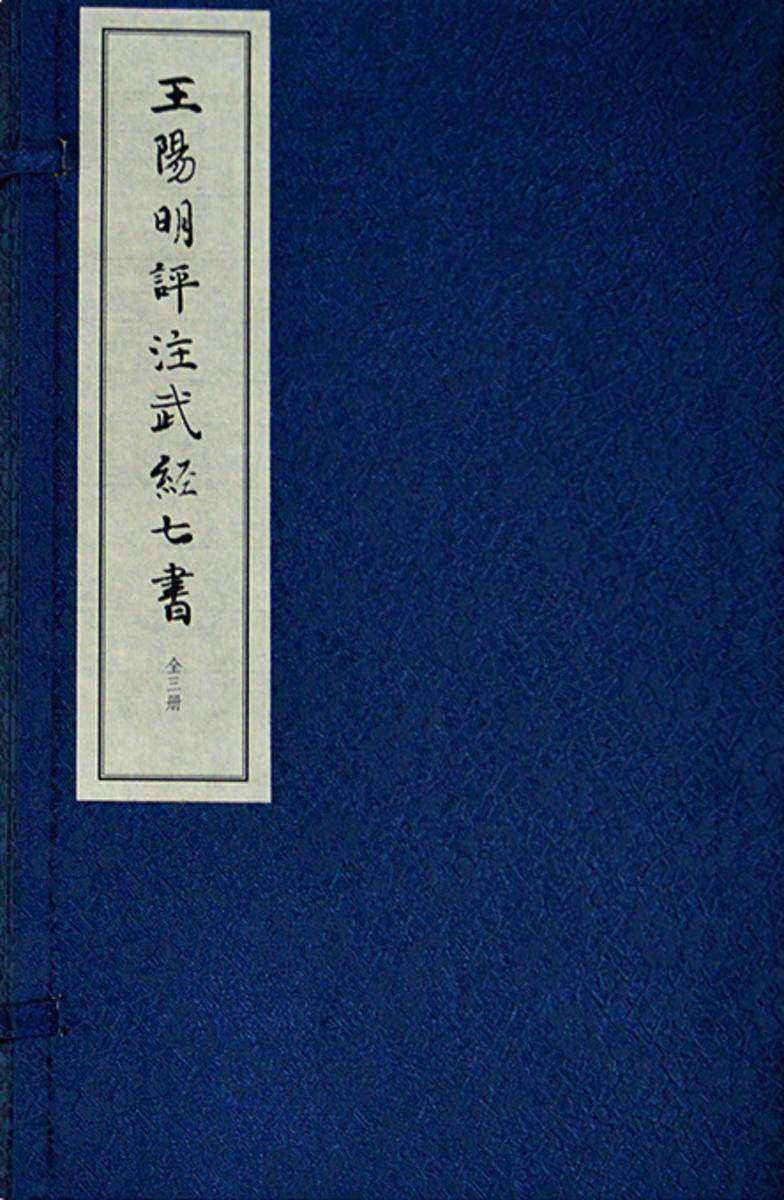
王阳明评注武经七书(线装本)全三册(试读本)
免费
《武经七书》是对七部兵家经典著作的合称,分别为《孙子兵法》《吴子》《六韬》《司马法》《三略》《尉缭子》《李卫公问对》,由宋神宗时期武学博士何去非等编纂,之后,《武经七书》作为一个整体长期流传,出现了众多注本,明代学者王阳明评注、胡宗宪续评本即为其中之一,遗憾的是,该书因流传不广,不为当下读者熟知。基于此,我们以台湾老古出版社影印茅震东考订本为底本加以校整理,采用线装形式,双色印刷,王阳明、胡宗宪的批注文字、各类批注符号均用与底本近的红色,所在位置亦尽量遵照底本。除此以外,利用相关文献对原书中的一些明显误字做了校勘,对一些疑难问题做了简要注释。




 购物车
购物车 个人中心
个人中心



